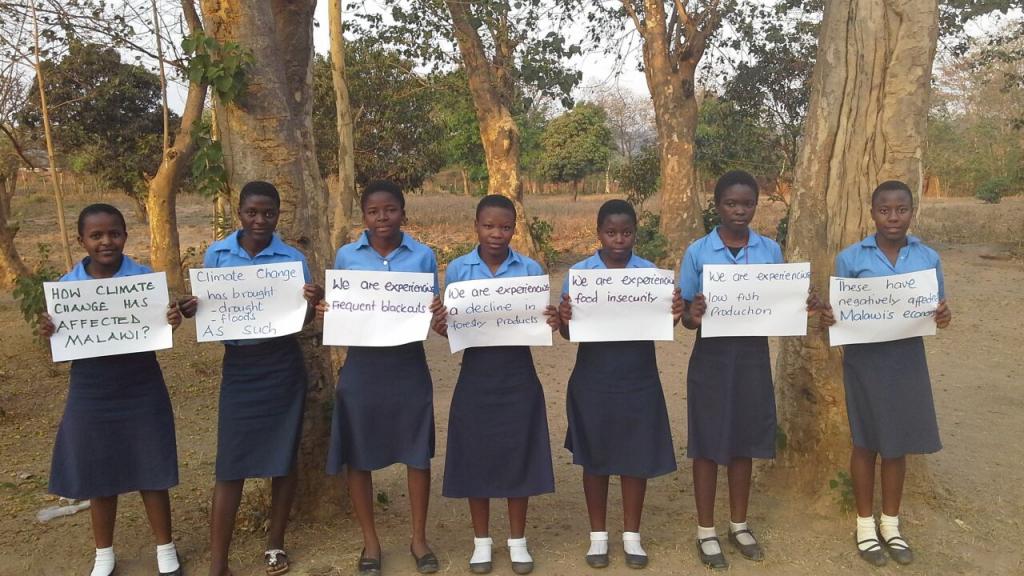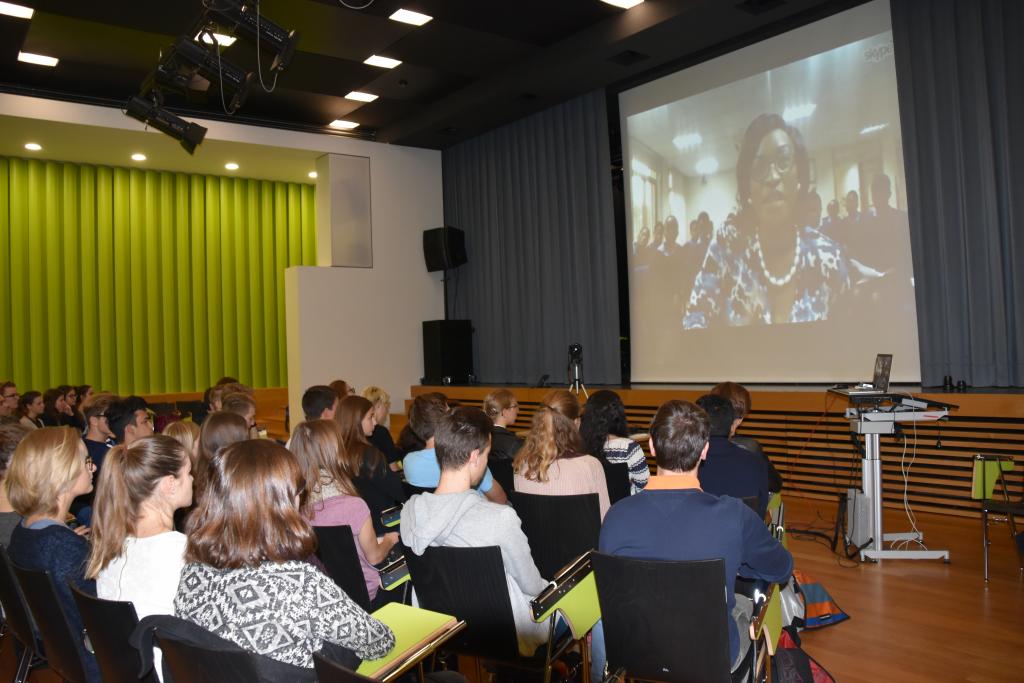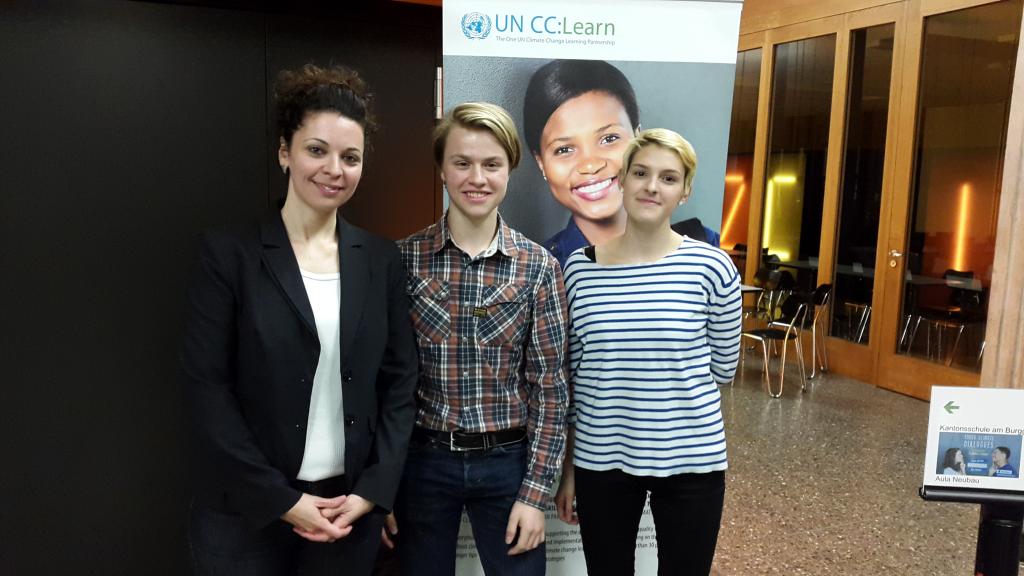Climate Change: Theoretical Concept or Reality?
Youth Climate Dialogue between schools in Lilongwe (Malawi) and St. Gallen (Switzerland) facilitates an intimate exchange of views on what climate change means for young people from different backgrounds.
November 2015, St. Gallen, Switzerland and Lilongwe, Malawi - Thursday morning at Kantonsschule am Burggraben Highschool in a small town in Northern Switzerland, 30 secondary students peer at a big screen. On the other side of the world 20 other students from the Lilongwe Girls Secondary School stare back at them.

The preparations for this dialogue had been intense. In the weeks leading up to the event both schools had discussed climate change in class; they have taken an introductory online course; and they had worked on their own projects to illustrate what climate change meant to them. The Lilongwe Girls School prepared interviews and photo-statements about how climate change is affecting them. The Swiss students also produced pictures and videos, including a weather forecast for 2050 showing what might happen to Switzerland’s snow and glaciers, “if we don’t change our ways”.

Here they are getting ready for the videoconference. The connection is not always stable, but the discussion is authentic, direct and intimate. The students talk about the impacts of climate change on the environment, society and the economy, but also very personal experiences. One girl from Malawi talks about the time her grandmother’s house got washed away by a flood. Another talks about the frequent power cuts that they face in Lilongwe. All want to know how climate change is affecting life in Switzerland. Ms. Linda Gervasi, the St Gallen class teacher observes: “We could have read a text book or watched a documentary, but it would have never had the same effect as this direct exchange.”

A few days later some impressions from the dialogue are shared at a public event. Climate Change Learning Ambassador Ms. Shamiso Najira from the Malawi Ministry of Environment said how proud she was of the students from Lilongwe and highlighted how well girls in a Least Developed Country like Malawi can embrace complex subjects like climate science. “Participating in the Dialogue has helped to build up their confidence and who knows, in 10 years these girls might be the future climate leaders of Malawi”.
What might the students have talked about on their way home, or at the dinner table that evening? This climate dialogue won’t have changed their lifestyles overnight, but perhaps provide a new perspective to reflect upon that just might make a difference in time.
About the UN CC:Learn Youth Climate Dialogues
In the run-up to the Climate Change Conference in Paris, December 2015, the Swiss Development Cooperation (SDC) and UN CC:Learn are providing a forum for youth both in Switzerland and UN CC:Learn’s partner countries to share their views about climate change. Next dialogues:
- La Tour de Peilz, Switzerland – Niamey, Niger, 18 November 2015
- Lugano, Switzerland – Kampala, Uganda, 9 December 2015
UN CC:Learn is a partnership of more than 30 multilateral organizations supporting countries to design and implement systematic, recurrent and results-oriented climate change learning. At the global level, the partnership supports knowledge-sharing, promotes the development of common climate change learning materials, and coordinates learning interventions through a collaboration of UN agencies and other partners. At the national level, UN CC:Learn supports countries in developing and implementing national climate change learning strategies. Through its engagement at the national and global levels, UN CC:Learn contributes to the implementation of Article 6 of the UNFCCC on training, education and public awareness-raising, and the 2012-2020 Doha Work Programme. Funding for UN CC:Learn is provided by the Swiss Government and UN partners. The Secretariat for UN CC:Learn is hosted by UNITAR.
Photo 1: Photo project by the Students from the Lilongwe Girls Secondary School.
Photo 2: Ms. Shamiso Najira, UN CC:Learn Ambassador from Malawi talking with the students in St. Gallen via video conference.
Photo 3: Ms. Linda Gervasi, geography teacher at the St. Gallen school with two of the students that participated in the Dialogue.

